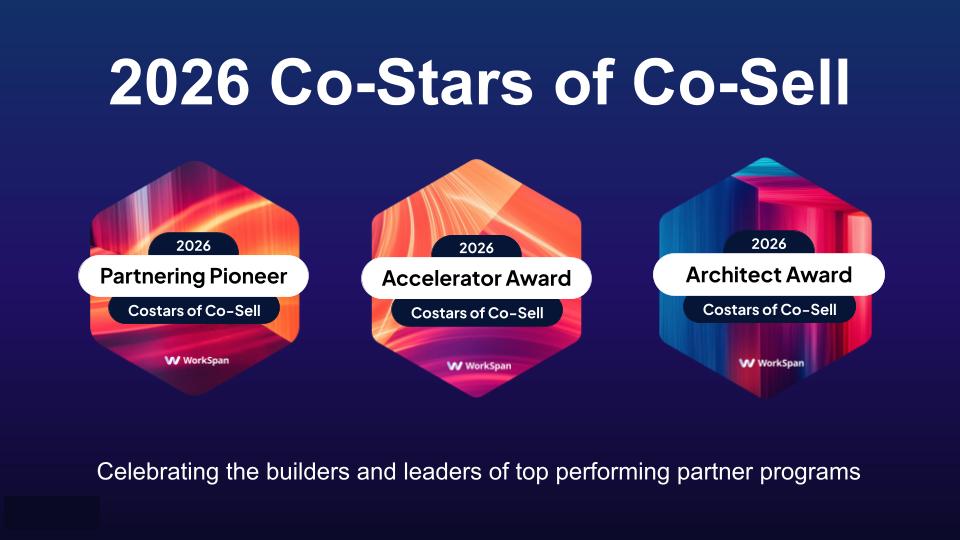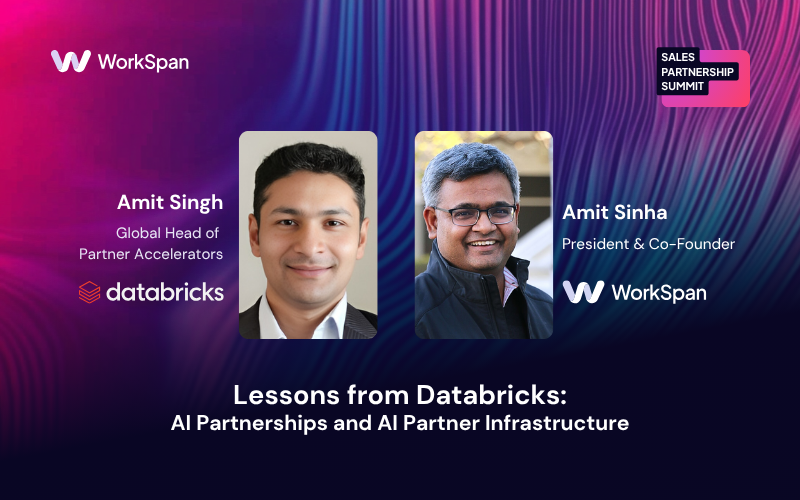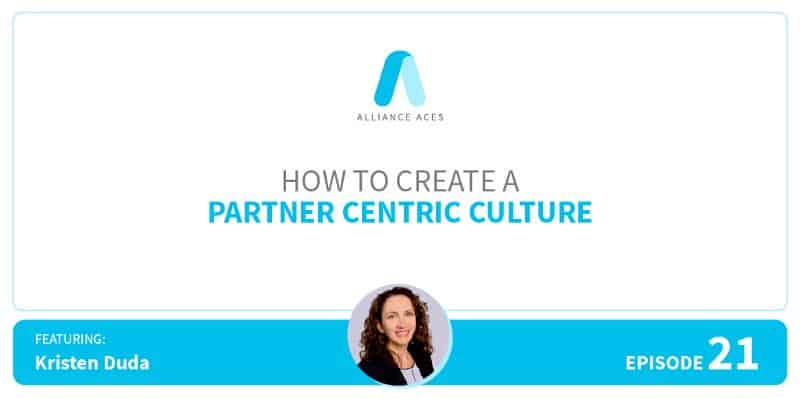
A spirit of customer service is at the heart of any partnership role.
When partners feel like they’re part of the team, they’re willing to go the extra mile with you.Kristen Duda is the VP of Strategic Alliances at Intelex Technologies, and she is striving to build a partner centric culture at her company.Intelex is a SaaS company for environmental health, safety, and quality management. ItsTheir goal is to help change businesses for good through improving business performance and compliance. Intelex started in 1992, and currently has over 1,000,000 users. They’ve see rapid growth over the past few years, so Kristen is focused on building out formal partners at a strategic level.Kristen’s role is a complicated one; she must build out partnerships while changing her internal culture to one that values these new alliances. We sat down with Kristen to talk about bringing customer experience applications to partnerships, her strategies for quick wins within her role, and the future of her business.
Customer Experience Applied to Partnerships.
Kristen’s current role ties together her personal and professional passions. She’s a new alliance professional with an original background in chemical engineering. In between those two periods, she went into environmental consulting where she spent 13 years learning about the industry she now works in and the importance of a robust customer experience.Being a VP of Strategic Alliances is a cross functional role and highly influential role filled with both internal and external challenges. It is almost entirely relationship management, from focusing on partners externally to changing culture within the company, but she’s had fun watching these relationships evolve.
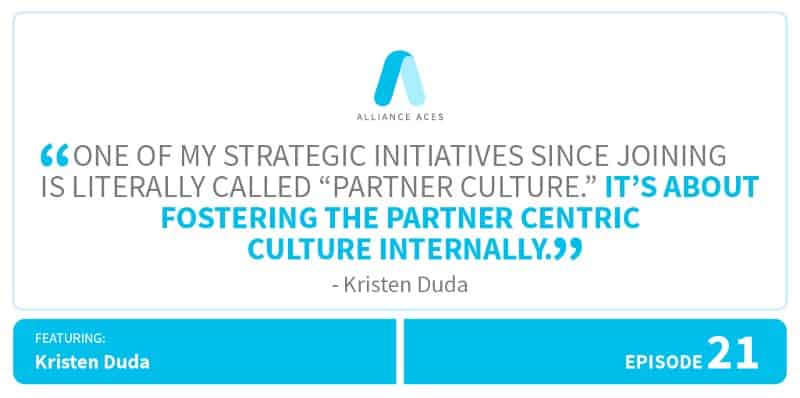
Here are some tactical tips that Kristen has used internally to shift to a customer-centric culture:
- Designate space for partners. In Intelex’ offices, they have dedicated space for partners when they visit the Intelex space. They have created partner incubation hubs. From a camaraderie and teamwork point of view, this helps the partners really feel like part of the team. There are no dividing lines between companies. Partners are meant to feel like this is an extension of their office from Day One.
- Acknowledge joint wins publicly. Every time a major deal is closed, an email gets sent out from Intelex’ sales force acknowledging everyone who was part of the deal. They make a special effort to pull partners associated with the deal into the spotlight to feel like a member of the team. It’s a small gesture, but it shows that the partner was just as big of a part of the success as the Intelex team was. Often these little tokens of gratitude go a long way.
- Ask questions. What is the journey like for our partners when they are working with us? Kristen is always asking herself this question. She’s mapped out from beginning to repeat business what this journey looks like. She looks for steps and tools to put in place to make the partnership better; she’s continually improving the partner journey.
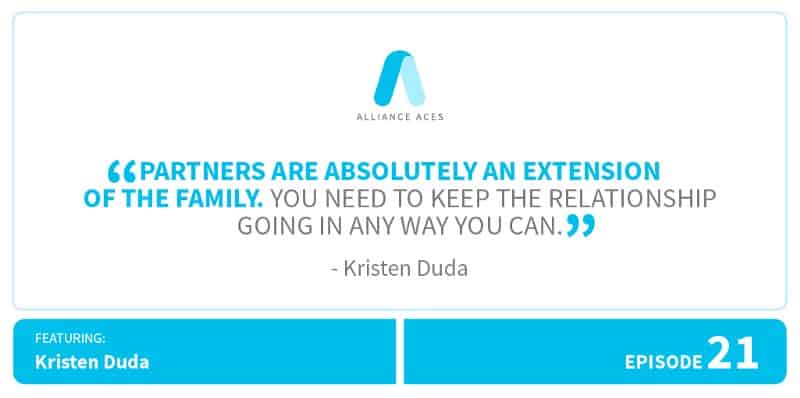
Quick Wins for Alliance Teams
The Alliance role can be a difficult one because there are so many different things you could be focusing on. But Kristen likes to remind herself to look for quick wins that make her and her team feel accomplished instead of feeling overwhelmed with relationship management.Kristen and her team are moving quickly; they often chase a deal with partners and co-sell solutions. After they would win a deal, they would then turn to focus on enablement, and it was was very challenging to get partners feeling enabled for success. One quick win they’ve focused on is proactively enabling partners with success and support teams along the buying process.Another quick win has been a focus on formally tracking where Kristen’s team is pursuing partnerships. They now have visibility into where every deal is. This allows them to proactively look at the health of each viable partnership ahead of time.
The Future of Partner Innovation
At Intelex, they are exploring the Internet of Things (IoT) space. From exoskeletons to smart belts, Intelex is investigating a wide variety of use cases jointly with other partners to find out what is useful to customers. Their overall intent in diving into IoT studies is to give use data to provide visibility into foreseeing workplace accidents.Whether it’s IoT, AI applications, or other new pieces of technology, Kristen will need to rely on alliances and partnerships to bring the most possible success to her team at Intelex.This post is based on an Alliance Aces podcast with Kristen Duda. Watch the Facebook Live video interview with here.To hear this episode, and many more like it, you can subscribe to Alliance Aces Podcast or visit our dedicated Alliance Aces page.To contact the host, Chip Rodgers, with topic ideas, suggest a guest, or join the conversation about alliances, he can be reached by:
- Email: chip@workspan.com
- Twitter: @chiprodgers
- LinkedIn: linkedin.com/in/chiprodgers

Heading
Heading 1
Heading 2
Heading 3
Heading 4
Heading 5
Heading 6
Lorem ipsum dolor sit amet, consectetur adipiscing elit, sed do eiusmod tempor incididunt ut labore et dolore magna aliqua. Ut enim ad minim veniam, quis nostrud exercitation ullamco laboris nisi ut aliquip ex ea commodo consequat. Duis aute irure dolor in reprehenderit in voluptate velit esse cillum dolore eu fugiat nulla pariatur.
Block quote
Ordered list
- Item 1
- Item 2
- Item 3
Unordered list
- Item A
- Item B
- Item C
Bold text
Emphasis
Superscript
Subscript



.png)
